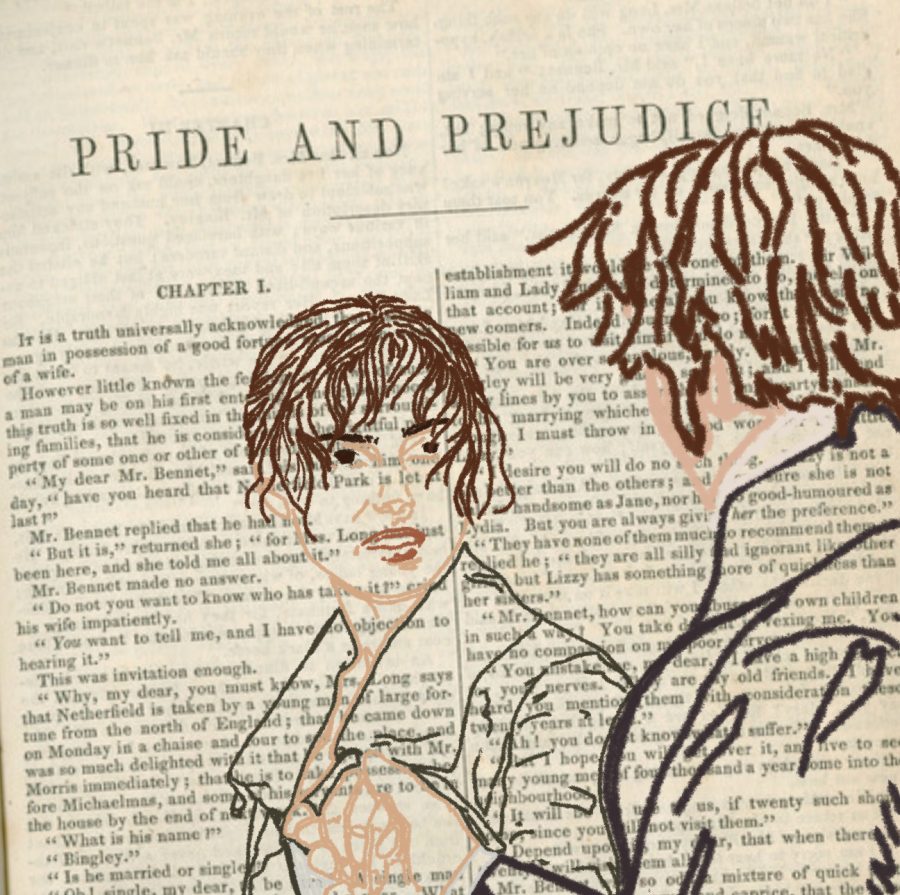Why Pride and Prejudice is Still Relevant Over 200 Years Later
November 9, 2022
Since the release of Jane Austen’s Pride and Prejudice some 200 years ago, people have been falling for Mr. Darcy as they cozy up every October in preparation for autumn. With Netflix’s modern-day adaptation of Pride and Prejudice, Netherfield Girls coming up, it seems only appropriate to address the Darcy madness that seems to embellish every cold New England fall. It’s no secret that a new generation of Pride and Prejudice fans is emerging. The question is, why now? How has Jane Austen mastered the writing of a swoon-worthy Victorian love interest? And how has its seeming permanence transcended age? The short answer to these questions is something along the lines of: Jane Austen really is just that good.
The story of Pride and Prejudice follows a budding romance between Mr. Darcy, a cold, wealthy man, and Elizabeth Bennett, a less wealthy and somewhat unconventional woman. He’s described as disagreeable, offensive, and rude, but is redeemed later on when he reveals a more progressive and passionate side of himself to Elizabeth. Jane Austen writes her characters from the unique perspective of a 21st-century forward thinker living in a Victorian woman’s body. Her thinking, radical for the time, included considering equality between women and men in romantic relationships and marrying for love. Stemming from her progressive point of view, her female characters were extremely relatable, with ambitions that went further than what the boy next door thought of them. Part of (if not most of) the appeal of Mr. Darcy is his willingness to openly demonstrate his devotion to Elizabeth in a consensual and non-Youesc manner. Granted, the audience had to endure his “not like other girls” mindset to get there, but his complexity makes him all the more intoxicating. Mr. Darcy expresses how enamored he is with Elizabeth through an unforgettable tone and delivery. His most famous line from the 2005 film adaptation remains: “You have bewitched me body and soul and I love- I love- I love you.” Swoon points: infinite.
With the falling of the leaves and the orangey light that hits landscapes at a slant, the world welcomes autumn and colder weather. It’s hard to say when the correlation between romantic love and cold weather began, but for many people, the pressure to bring a partner to a family dinner is very real. Austen, however, was in a committed relationship with her writing. It’s funny to think that the author with the most adaptations (after Shakespeare) and who wrote the best romances in literature never found love. It seems fitting, however, that someone whose hopeless-romantic outlook on life hadn’t been trumped by reality was able to conjure up such prominent romantic leads.
Pride and Prejudice transcends generational barriers because the feeling that true love is always out of reach is a universal and timeless feeling. For most, compensation takes the form of escaping into the dreamy unrealistic characters that give us permission to live in blissful ignorance, even if only for a moment.
This piece also appears in our October 2022 print edition.










